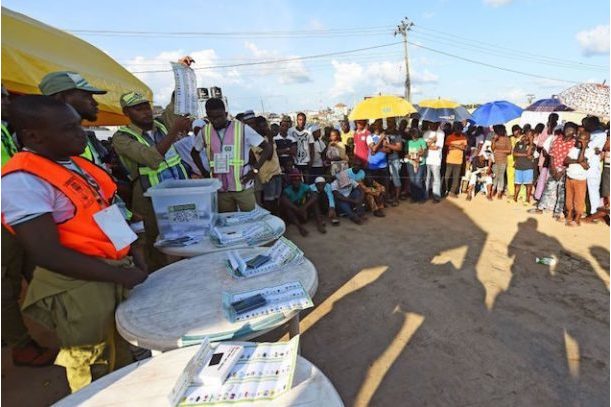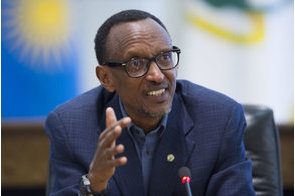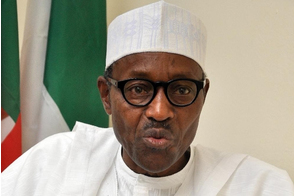Latest News
EU report shows lack of transparency in Nigeria's 2019 election results

News Highlight
The report identifies considerable weaknesses in the electoral process, including operational deficiencies and lack of transparency in the procedures for collation of results.
The European Union Election Observation Mission (EU EOM) to Nigeria released, on Saturday, its final report on the 2019 general elections in the country. The report identifies considerable weaknesses in the electoral process, including operational deficiencies and lack of transparency in the procedures for collation of results.
Following the presidential and National Assembly elections, which took place on February 23rd, the Independent National Electoral Commission (INEC) declared President Muhammadu Buhari, candidate of the All Progressives Congress (APC), as the winner of the 2019 presidential election, having polled 15,191,847 votes to defeat his closest rival, Alhaji Atiku Abubakar, of the People’s Democratic Party (PDP), who polled 11,262,978 votes. The governorship and State Houses of Assembly elections held on March 9th.
The EU EOM said there were systemic failings in the elections and concluded they were "marked by severe operational and transparency shortcomings, electoral security problems and low turnout." The mission also said the violence and intimidation, which marred the elections, damaged the integrity of the electoral process. According to EU observers, they directly witnessed or received reports of intimidation of INEC officials in no less than 20 states.
Following the systemic failings observed during the elections, the EU observers have called for a fundamental reform of the electoral process, without which there are risks of further deterioration in Nigeria's democracy and unaccountable leadership.
"Such reform needs political leadership that is dedicated to the rights of Nigerian citizens, and an inclusive process of national dialogue involving state institutions, parties, civil society and the media,” said EU Chief Observer, Maria Arena, at a press conference in Abuja. “This needs to be urgently undertaken to allow time for debate, legislative changes and implementation well in advance of the next elections.”
Among the 30 recommendations made by the EU EOM for improving elections in Nigeria, the mission said seven are priority recommendations. They include: Strengthening INEC's procedures for the collation of results to improve integrity and confidence in electoral outcomes; Establishing requirements in law for full results transparency; Strengthening INEC’s organisational and operational capacity; More co-operation between security agencies, political parties and civil society; Legal requirement for gender inclusion in political processes; More access to electoral tribunals and efficiency in election cases; Regulatory framework for media pluralism and diversity among broadcast media.
The 30 recommendations for reform broadly cover legal frameworks; election administration; voter registration; parties, primaries and the registration of candidates; political finance; electoral security; electoral dispute resolution; electoral offences; civil society and electoral observation; inclusion; and media. On a positive note, the mission reported that parties and candidates were able to campaign freely as freedoms of assembly, expression and movement were largely respected.
The PDP has commended the EU report, which the party said validates its position that the elections were rigged as millions of PDP votes were allegedly cancelled by INEC.
“Nigerians are still in shock over the revelations by EU of how about 2.8 million votes were deliberately “cancelled without sufficient accountability” and how several returning officers gave no reason for the cancellations," PDP's National Publicity Secretary, Kola Ologbondiyan, said on Sunday.
He added there were distortions in the results, including “a large discrepancy of 1.66 million more registered voters, as announced by INEC on January 14, compared to those announced by state returning officers during the collation of presidential results.”
On its part, the APC faulted the mission's reports. Former Spokesperson for the Buhari Campaign Organization, Festus Keyamo, said the EU EOM did not come to any definitive conclusion in its report.
"The result reflects the overall wishes of Nigerians, that was the report by so many observers," Keyamo said. "If you are an observer you should come to a definitive conclusion; don’t be dodgy about it, don’t run away from that fact because we have 120,000 polling units across the country and in all their reports, I don’t think they discussed at most 500 polling units."
The mission said it was present in Nigeria between January 5th and April 7th, 2019 and its observers went to all 36 states and the Federal Capital Territory (FCT). According to the EU, election observation is a vital part of its activities as it aims to promote democracy, human rights and the rule of law worldwide.
Related News
Latest Blogs
- Tackling antibiotic resistance through safer food systems
- Big government, little governance
- What will matter in Nigeria in 2026
- The Museum of West African Art saga
- The complexity and complication of Nigeria’s insecurity
Most Popular News
- NDIC pledges support towards financial system stability
- Artificial intelligence can help to reduce youth unemployment in Africa – ...
- Pan-African nonprofit appoints Newman as Advisory and Executive Boards Chair
- World Bank approves $500m loan for small businesses in Nigeria
- AfDB mobilises $11 billion for investment-led development
- UN adopts new consumer product safety principles







